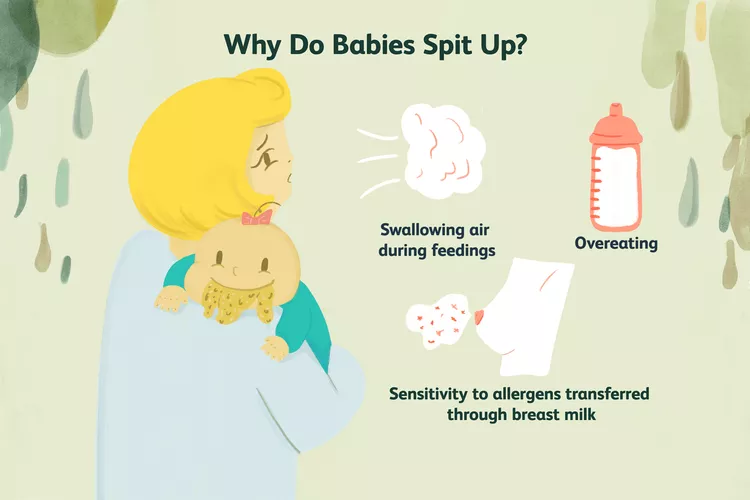Certainly! Whenever a sick infant is capable of oral intake, the priority should be providing breastmilk from their mother. Breastmilk delivers customized antibodies that actively combat the baby’s specific infection while offering rapid, gentle digestion.
Interrupting breastfeeding during illness not only strips the baby of these targeted immune defenses and optimal nutrition but also creates significant challenges. For the infant, breastfeeding serves as both a physiological remedy and emotional solace—critical elements for recovery. Meanwhile, the mother faces dual pressures: maintaining milk production through frequent pumping (with potential supply fluctuations) and avoiding complications like mastitis or engorgement if milk isn’t adequately expressed.
This approach balances the child’s immediate health needs with the long-term sustainability of the breastfeeding relationship, emphasizing that continued nursing benefits both parties far beyond basic nourishment.
Breastfeeding Strategies for Infants with Colds and Nasal Congestion
When a baby develops a cold with nasal congestion, breastfeeding may become challenging. However, nursing remains more feasible than bottle-feeding for infants during illness. To ease breathing and feeding simultaneously, consider these approaches:
Positioning Adjustments:
- Keep the baby upright during feeds to reduce nasal blockage. At night, use pillows to prop yourself and the baby in a semi-reclined position.
- Try the “Australian position,” where the mother lies on her back and the baby rests tummy-down on her chest. This alignment promotes easier airflow and latch.
Frequent Nursing for Immune Support:
- Breastfeed often to deliver antibodies tailored to combat the baby’s illness, accelerating recovery. Shorter, more frequent sessions ensure adequate milk intake, as congestion often disrupts extended feeds.
Nasal Clearance Techniques:
- Use saline drops or breastmilk to soften mucus, followed by gentle suction with a nasal aspirator. Always perform this before feeding to avoid triggering spit-up from gag reflexes.
- For homemade saline, dissolve 1 teaspoon of salt in 2 cups of warm water.
- Place the baby face-up on your knees, tilt your knees downward, and apply 2–3 saline drops per nostril. Wait 1 minute before suctioning.
Environmental Modifications:
- Run a humidifier in a small, closed room to moisten airways. Alternatively, nurse in a steamy bathroom by running hot water and sitting outside the shower area.
- Avoid direct application of menthol-, camphor-, or peppermint-based products (e.g., Vicks VapoRub™) to the baby’s skin, as these can cause respiratory distress or liver damage.
Medication Guidelines:
- Over-the-counter cold medications are not recommended for children under 4–6 years old due to unproven benefits and risks of severe side effects.
Debunking Myths About Breastfeeding and Mucus:
- Continuing breastfeeding is safe and beneficial. Human milk does not increase mucus production unless a rare dairy allergy exists—a concern unrelated to cow’s milk reactions.
By prioritizing upright positioning, nasal hygiene, and consistent nursing, caregivers can support both the baby’s comfort and recovery during respiratory illnesses.
Supporting Nursing During Infant Illness
When a baby refuses to breastfeed due to illness—such as a sore throat, ear infection, or congestion—adjusting strategies can help maintain feeding and comfort. Experiment with upright nursing positions, such as holding the baby vertically against your chest or using a laid-back posture, to reduce discomfort caused by pressure or swallowing difficulties. Continue offering the breast frequently (every hour or so), even if the baby initially resists, as many nursing strikes resolve once the illness subsides.
If direct breastfeeding remains challenging, provide expressed milk through alternative methods like a cup, spoon, or syringe. For younger infants, try chilled or slushy breastmilk served on a spoon to soothe inflammation while delivering nutrients. Older babies (6+ months) who consume solids can benefit from breastmilk-enriched foods, such as mixing milk into purees or preparing breastmilk yogurt to maintain hydration and immune support.
Persistent refusal may indicate pain or discomfort requiring medical evaluation, especially for conditions like ear infections or respiratory issues. Meanwhile, prioritize maintaining milk supply through regular pumping or hand expression to avoid engorgement and ensure readiness to resume breastfeeding once the baby recovers.
By combining patience, positional adjustments, and creative feeding techniques, caregivers can support both the baby’s recovery and the breastfeeding relationship during temporary setbacks.
Breastfeeding Guidance for Infants with Vomiting or Diarrhea
When a breastfed infant experiences vomiting or diarrhea, caregivers often question whether to continue nursing. Here’s how to approach this situation effectively:
Diagnosing Diarrhea in Breastfed Infants
- Loose stools alone do not indicate diarrhea. True diarrhea is characterized by 12–16+ watery stools daily, a sudden increase in frequency, and/or foul odor. Normal breastfed stools are typically soft and frequent but non-watery.
Why Breastfeeding Remains Critical
- Breastmilk is the first-line therapy during illness. Its rapid digestion ensures nutrient absorption even if vomiting occurs shortly after feeding.
- Unlike oral rehydration solutions (e.g., Pedialyte) or other fluids, breastmilk provides antibodies, immune cells, and tailored nutrition to combat infection and speed recovery.
Feeding Strategies During Illness
- Increase nursing frequency: Smaller, more frequent feeds reduce gastric strain and improve nutrient retention.
- Adjust nursing techniques:
- Limit session duration if vomiting persists (less milk per feed reduces regurgitation).
- Pump briefly before latching to slow milk flow.
- Avoid interrupting breastfeeding unless severe dehydration develops. Studies show breastfed infants recover faster and lose less weight than formula-fed counterparts during diarrhea.
When to Consider Oral Rehydration Solutions (ORS)
- Use ORS only if breastfeeding is insufficient or dehydration signs emerge. The World Health Organization advises combining ORS with breastfeeding for optimal hydration.
Recognizing Dehydration
Monitor for:
- Fewer than 2 wet diapers/24 hours
- Sunken eyes, dry mouth, or wrinkled skin that doesn’t rebound when pinched
- Lethargy, weak cry, or rapid breathing/heartbeat
- Cool extremities or fever
Debunking Myths About Breastmilk
- Breastmilk is not a dairy product and does not worsen lactose intolerance during illness. Even in cases of secondary lactose intolerance (post-infection gut irritation), breastfeeding should continue, as the gut heals faster with ongoing exposure to milk’s protective factors.
Recovery Timeline
- Diarrhea-related gut inflammation may take weeks to resolve, but breastfeeding supports healing rather than prolonging symptoms. Avoid unnecessary dietary restrictions, as reintroducing solids alongside breastfeeding aids recovery and prevents nutritional deficits.
By prioritizing breastfeeding and monitoring hydration, caregivers can safely navigate these common illnesses while supporting the infant’s immune and digestive health.
The Critical Role of Breastmilk During Infant Illness
When a baby falls ill, outdated advice may suggest replacing breastfeeding with oral rehydration solutions like Pedialyte. However, this approach offers no advantages for breastfed infants and can hinder recovery. Breastmilk remains uniquely suited to meet a sick baby’s heightened needs through four essential components:
Antibodies for Immune Defense
Breastmilk delivers targeted antibodies to combat the specific pathogens causing the illness. These immune-boosting elements are absent in Pedialyte, making frequent nursing critical to maximize antibody intake and accelerate healing.
Superior Hydration and Nutrient Absorption
While Pedialyte addresses hydration, breastmilk provides both fluids and concentrated nutrients. Its rapid digestion ensures faster nutrient uptake, vital when a sick baby’s appetite diminishes. Additionally, breastfeeding thins mucus secretions during respiratory illnesses, enhancing comfort.
Comprehensive Nutritional Support
Unlike Pedialyte—which lacks meaningful nutrients—breastmilk contains proteins, lipids, and oligosaccharides tailored to sustain energy and growth. Studies highlight its role in reducing inflammation and supporting gut health, which are especially crucial during gastrointestinal illnesses.
Emotional and Physiological Comfort
Nursing offers unparalleled soothing effects, calming a distressed infant through skin-to-skin contact and hormonal regulation. This dual physical-emotional support aids recovery more effectively than passive fluid intake.
Research underscores that interrupting breastfeeding risks depriving infants of evolutionarily optimized nourishment. While Pedialyte may supplement hydration in rare dehydration cases, breastmilk’s multifaceted benefits—from immune modulation to developmental support—remain irreplaceable.




